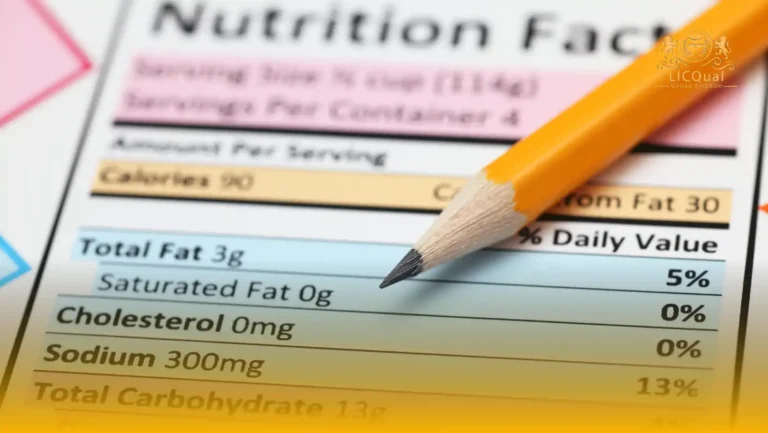The LICQual Level 2 Award in H2S is an essential qualification for individuals working in environments where hydrogen sulfide (H2S) gas exposure is a risk. Hydrogen sulfide is a toxic and highly hazardous gas commonly found in industries such as oil and gas, wastewater treatment, mining, and chemical manufacturing. This internationally recognized course provides participants with the necessary knowledge and skills to work safely in areas where H2S may be present.
Designed to enhance workplace safety, the Level 2 Award in H2S is ideal for those seeking to understand the risks associated with H2S gas exposure and learn how to respond appropriately in emergencies. The course covers the detection, safety precautions, and emergency procedures related to hydrogen sulfide, ensuring that individuals are well-prepared to work in high-risk environments. Upon completion, participants will gain the confidence and competence to protect themselves and others in H2S-prone work settings.
The LICQual Level 2 Award in H2S is a comprehensive program that equips learners with the vital skills to identify, assess, and manage the dangers of hydrogen sulfide exposure. The course covers key topics such as the properties and hazards of H2S, the use of personal protective equipment (PPE), and emergency response techniques, including evacuation procedures and first aid for H2S poisoning.
Throughout the LICQual Level 2 Award in H2S, learners will explore the behavior of hydrogen sulfide gas, its potential health effects, and how to minimize exposure risks through proper safety protocols and monitoring equipment. This qualification also emphasizes the importance of a proactive safety culture, ensuring that workers are trained to react quickly and efficiently in the event of a gas leak or exposure incident.
The course is delivered through a mix of theoretical instruction and practical scenarios, helping learners develop the competence to work safely and confidently in environments where H2S is a potential hazard. It is aimed at individuals working in industries such as oil and gas, petrochemical, mining, and any other field where H2S exposure is a concern.
Upon successful completion of the course, learners will receive a widely recognized certification, validating their ability to work safely in hazardous environments. This qualification is a vital stepping stone for individuals seeking to progress in industries where safety and risk management are critical.
Course Overview
Qualification Title
LICQual Level 2 Award in H2S
Total Units
6
Total Credits
6
GLH
12
Qualification #
LICQ2200403
Qualification Specification
To enroll in the LICQual Level 2 Award in H2S applicants must meet the following criteria:
|
Qualification# |
Unit Title |
Credits |
GLH |
|---|---|---|---|
|
LICQ2200403-1 |
Introduction to Hydrogen Sulphide (H2S) |
1 |
2 |
|
LICQ2200403-2 |
Health and Safety Risks Associated with H2S |
1 |
2 |
|
LICQ2200403-3 |
H2S Detection Methods and Equipment |
1 |
2 |
|
LICQ2200403-4 |
H2S Safety and Control Measures |
1 |
2 |
|
LICQ2200403-5 |
Emergency Procedures and Response |
1 |
2 |
|
LICQ2200403-6 |
Legal and Regulatory Framework for H2S |
1 |
2 |
By the end of this course, learners will be able to:
- Introduction to Hydrogen Sulphide (H2S)
- Understand the properties and characteristics of hydrogen sulfide (H2S) gas.
- Recognize common industries and environments where H2S exposure is a risk.
- Health and Safety Risks Associated with H2S
- Identify the health hazards and symptoms of H2S exposure, including short-term and long-term effects.
- Understand the potential dangers of working in H2S-prone environments and the importance of risk assessment.
- H2S Detection Methods and Equipment
- Learn how to detect the presence of H2S using various monitoring devices and detection systems.
- Understand the proper use and limitations of H2S detection equipment in different work environments.
- H2S Safety and Control Measures
- Implement safety protocols and control measures to minimize exposure to H2S gas.
- Understand the role of personal protective equipment (PPE) in protecting workers from H2S exposure.
- Emergency Procedures and Response
- Recognize the emergency procedures for H2S exposure, including evacuation and first aid steps.
- Respond appropriately to an H2S leak or exposure incident, ensuring the safety of individuals in the area.
- Legal and Regulatory Framework for H2S
- Understand the legal requirements and regulations regarding H2S exposure and workplace safety.
- Recognize the responsibilities of employers and employees in adhering to health and safety standards related to H2S.
This diploma is ideal for:
- Individuals working in industries where hydrogen sulfide (H2S) exposure is a risk, such as oil and gas, mining, petrochemical, and wastewater treatment.
- Health and safety officers and professionals looking to deepen their understanding of hydrogen sulfide risks and safety measures.
- Workers in hazardous environments who need formal training to manage the risks associated with H2S exposure.
- Those responsible for emergency response and safety procedures in H2S-prone areas.
- Entry-level workers seeking to specialize in H2S safety or advance their careers in high-risk industries.
- Supervisors and managers aiming to improve workplace safety protocols and ensure compliance with H2S regulations.
- Individuals interested in gaining a recognized certification in H2S awareness and emergency response for career progression.
Assessment and Verification
All units within this qualification are subject to internal assessment by the approved centre and external verification by LICQual. The qualification follows a criterion-referenced assessment approach, ensuring that learners meet all specified learning outcomes.
To achieve a ‘Pass’ in any unit, learners must provide valid, sufficient, and authentic evidence demonstrating their attainment of all learning outcomes and compliance with the prescribed assessment criteria. The Assessor is responsible for evaluating the evidence and determining whether the learner has successfully met the required standards.
Assessors must maintain a clear and comprehensive audit trail, documenting the basis for their assessment decisions to ensure transparency, consistency, and compliance with quality assurance requirements.







